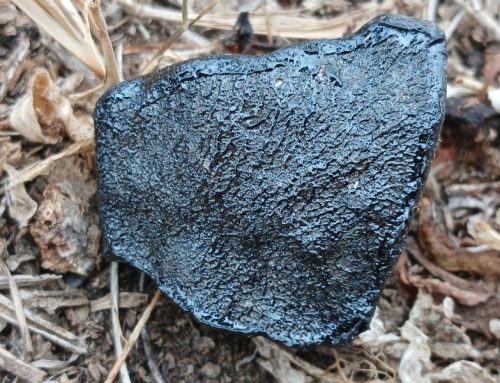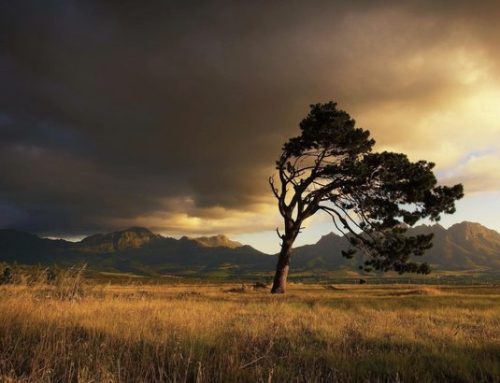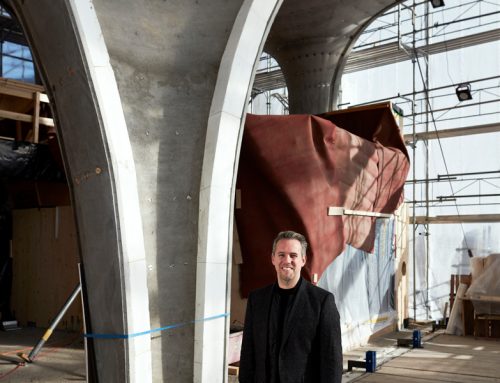 When we talk about shale gas mining and fracking, we are not talking about one little well in the middle of the Karoo. We are talking about 60% of South Africa’s land surface being targeted for production.
When we talk about shale gas mining and fracking, we are not talking about one little well in the middle of the Karoo. We are talking about 60% of South Africa’s land surface being targeted for production.
It’s been two long years since a group of farmers gathered in the bowling club in the Karoo town of Hofmeyr where Shell held its first ever meeting to spell out their shale gas fracking plans. I was there.
Shell’s team extolled their own virtues, emphasising what good guys they are and what a clean environmental record they have. They spoke as if the Niger Delta and all the other Shell–shocked fallout zones in the world don’t exist.
With hindsight the farmers should have stopped the meeting right there and asked whether this was a declaration of war given that shale gas mining threatens to destroy their livelihoods and the agricultural economy of the Karoo.
But it was only the first meeting and all the farmers wanted to know was:
What chemicals do you use in the fracking process?
Where will you source the millions upon millions of litres of water required for this process?
Is there are a risk of contaminating our water?
No one from Shell was prepared to respond to these basic concerns.
Instead they invited everyone for tea and sandwiches.
The Karoo farmers immediately felt uncomfortable, they felt the vastness of the shadow of threat passing over them, and they were not wrong. They have since learnt that Shell and various other oil and gas companies are targeting 60% of South Africa’s land surface, starting with the Karoo.
Which is why global businessman Johann Rupert, who is from the Karoo, publicly warned Shell not to play Russian roulette with the Karoo and not to treat the people of Karoo like “hillbillies”. Yet still they do.
Over two long years farmers, landowners and community members of the Karoo – all shapes, sizes and colours – have been subjected to a string of oil and gas men telling them how shale gas mining is going to bring wealth and employment to the impoverished. To make sure everyone in South Africa gets to hear this, Shell’s team has been working overtime, including sending a string of journalists on cushy trips to the United States. I have not been invited.
Two years later the people of the Karoo still don’t have any answers to their questions. All they know is that Shell executives are well schooled in double speak. “We won’t compete with the farmers’ water,” Shell’s Joburg-based Upstream General Manager, Jan Willem Eggink, repeatedly states. A smooth-talking Hollander he has spent tellingly little time in the Karoo yet he talks about the Karoo on TV as if he knows and loves it well.
For Eggink or Shell to state that it will not compete with the farmers’ water rings alarm bells from here to China (where Shell is already very busy drilling for shale gas and where they surely had a far easier time steamrolling the locals because active citizenry is not encouraged in that part of the world).
Why does it ring alarm bells? Because we all know there are deepwater aquifers in the Karoo, situated below the level of the boreholes where farmers access their water. However, the system is interlinked and if Shell drills down to or fracks the deeper levels it could have a devastating leakage effect into the shallower levels, increasing the danger of ground and surface water contamination.
Drilling, like fracking, is not regulated in South Africa, and, with or without fracking, it remains a highly invasive process because it will need to penetrate down to 4-5.5km and then horizontally to approximately 2.5km to access the Karoo shale gas.
“This is massively deep drilling for which there is no experience in South Africa where shale gas mining has never been done. Contamination can occur from the deep drilling process alone,” explains attorney Derek Light who is based in Graaff-Reinet and who is representing thousands of farmers and landowners within the 220 000 sq kms of the Karoo that Shell and other oil and gas companies are targeting.
Mandated by the people he is representing, and including generous support from Johann Rupert, Light is heading a team of independent specialists from South Africa and the United States, including advocates, economists, engineers, mining specialists and environmental and water specialists, to get to the bottom of the implications of shale gas exploration and extraction in the Karoo and other parts of South Africa.
“There are so many questions we need to address,” says Light. “If, for example, as the government’s task team report on shale gas mining concludes, the resource will be depleted in 20-30 years, then what is the sense of going to the excessive expense of mining shale gas, which is another fossil fuel, when we have coal reserves for 200-300 years?”
It is also completely misleading to say that shale gas has a lighter carbon footprint than coal because that the carbon footprint of the full production cycle of shale gas will invariably exceed that of coal.
“We also need to look at the current global oversupply of natural gas (including shale gas). The price is currently below US$2 per 1000 cubic feet whereas it costs US$4.50 to produce this amount. How can this be economically viable, especially given the substantial challenges of exploiting South Africa’s reserves, given the depth of the gas and the lack of existing infrastructure? Does it not make sense to rather buy into the massive finds off Mozambique and import the gas we need?” questions Light.
Another critical area to assess is the impact on the Karoo’s agricultural economy given that the Eastern Cape region of the Karoo produces over 30% of the red meat in this country. Add the Western and Northern Cape regions of the Karoo and it goes up to approximately 50% of the country’s red meat production. The percentage of natural fibre the Karoo produces (notably wool and mohair) is even higher. Yet the Environmental Management Plan (EMP) that Shell submitted as part of its exploration application, describes the Karoo as an arid region with little agricultural merit. Regrettably the report produced by the Minister’s task team similarly reflects a complete lack of appreciation of the valuable contribution of agriculture in the Karoo, including its role as a substantial employment provider.
From start to finish Shell’s EMP, which was produced by environmental consultancy Golder Associates, reveals an alarming lack of detail and research, as Fritz Bekker, the environmental consultant commissioned by Light as part of the team that formally responded to Shell’s EMP, attests:
“It is my opinion that Shell’s EMP does not comply with any of the requirements of the Mineral and Petroleum Resources Development Act (MPRDA). In doing so, they’ve attempted to bypass legislation that exists to protect the people of South Africa, as enshrined in Chapter Two of our Constitution.”
Yet a senior scientist at Golder Associates, Dr Brent Baxter, signed it off.
It is up to South Africa to make sure that oil and gas companies comply with our legislation and that the necessary amendments to the mining-related laws are put in place to prevent companies from thinking they can present EMPs that are simply not good enough.
“For example, the law needs to ensure that substantial financial security is provided for a mining proposal of this kind, and the financial security needs to apply for a meaningful period of 100 years so that you don’t have companies pushing off and burdening the South African taxpayer with cleaning up the mess years down the line,” says Light.
“We also have to imagine what multi-well pads with 32 wells per pad, serviced by an average of 1400 trucks per drilling activity per well would look like and what the impact would be, because this is what Shell is proposing.”
Shell has stated that it would need 1-hectare per well pad because any area larger than 1-hectare automatically requires an Environmental Impact Assessment (EIA). In reality, explains Light, each 32-well pad might well need 3-4-hectares.
What is also far too unclear is how they would deal with the vast quantities of drilling mud, drilling cuttings, toxic fracking waste flowback and produced water containing heavy metals and a variety of impurities.
The South African government has, to its credit, acknowledged the concerns Light and his team have raised, many of which were in response to Shell’s EMP. Concerns raised include the potential dangers of fracking as a production method, especially considering that it is not regulated in South Africa, potential water, air and dust pollution, possible impacts of radioactive materials, socio-economics impacts…the list goes on.
“Accordingly, we have written to the Minister of Mineral Resources, Susan Shabangu, and recommended that she does not grant the five pending shale gas exploration applications on the grounds that there are far too many gaps and unknowns for it to be prudent. We advised that a Strategic Environmental Assessment by the government be undertaken before any decisions are made. This is crucial because as the law in South Africa currently stands, if the Minister grants an exploration right she must grant the production right as well.”
The Minister has not responded.
Regrettably the government has also decided against a Strategic Environmental Assessment.
“They have erred in our view. The precautionary rule should apply with an exploration process of this magnitude. It will be extremely difficult to stop the process once it has started and at which stage the people of this country might well be led on a legal dance we cannot afford,” explains Light, adding: “If the Minister grants the exploration applications, and if the conditions are offensive to us, then we will challenge this. We have come too far with this process for South Africa not to insist on good governance.”
Working against this are the rumours about big money changing hands, but irrespective of whether they are true or not the shale gas battle is far from over.
“What we have on our side is good law. We are fortunate to have one of the best legal systems in the world,” says Light. “If we can influence the improvement of our mineral laws, and make sure that changes are made in the law to benefit all the people in South Africa – from the Karoo to Mpumalanga – then we will have done something incredibly valuable for South Africa and the world.”




